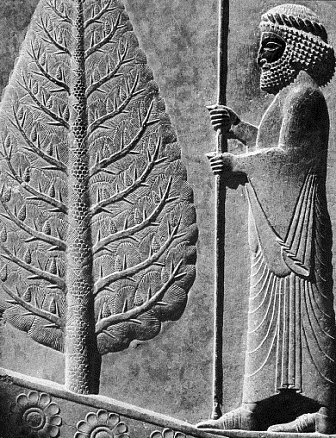Distinguishing Iran from other countries
Iran's history, in all its good and bad, does not need ideology. What distinguishes Iran from all of its neighboring countries is its historicity - that is, its non-ideological nature.- It is its history, and this is the historicity of Iran's history - that is, Iran's history hates all theories that are not compatible with its materials.- It makes non-ideological writing of Iranian history possible.
Countries in Iran's neighborhood, whose history has no sources other than the sources of Iranian history, must borrow the categories of social sciences and new political science to write their history.. Many of Iran's neighboring countries are historically not countries, and their history is a part of Iran's history, but they are considered countries due to the contrary of custom and according to the categories of new political science..
It is not possible to write the history of these countries in disregard of the categories of new political science, because although time has passed on them, the passage of time has not made the people of these countries to have such awareness that they can formulate the categories of understanding ethnic unity..
Iraq and Afghanistan, if they want to understand their "history and ethnic unity", they cannot do without the new categories of social sciences and political science, but the concepts of Iranian history, nationality and government have provided materials that can be used to understand the history of Iran without referring to the system of new concepts. finds out.
What I am saying is that in writing the history of Iran, it is not possible to use Hegelian, Marxian, etc … It was - that is, being a Hegelian or a Marxist is meaningless, although the Marxist history of Iran existed, but it was not more than self-serving.- It means that their conceptual systems are templates for special materials and they cannot be used except as templates..
When Hegel calls Iran the first state, he does not impose the concept of the state on the materials of Iran's history, in which case we could talk about the Hegelian ideology of the state, but he creates a concept that is revised by considering the reality and materials of Iran's history..
The use of the style of the history of the transformation of concepts for compiling the history of Iran is important in the sense that it guides the historian to the depth of the history of Iran in order to be able to clarify their relationship with the concepts in which the Iranians understood their history by diving into the materials of the history of Iran..
Therefore, the Iranian historian, unlike many countries that are not yet considered a nation, i.e., the history materials of those countries cannot be put in the form of the concept of nation in its new meaning, has materials from the history of Iran before the formation of the new state, which is not incompatible with the new concept of the nation..
The fact that since a century ago, many Iranian scholars have been able to explain some of the materials of Iranian history before the modern era in the form of the concept of "nation" and "national", means that such areas of history and historical thought in Iran are similar to the concept of "nation". and "national" were so close that those materials could not be understood as the content of another concept.
More than a century ago, the German orientalist Theodor Noldeke called the Shahnameh of Hakim Abolghasem Ferdowsi the national epic of Iran and the fact that the German historian Walter Hintz called the rise of the Safavids "the formation of a national state" in Iran, that is why they both have traces of reality in Ferdowsi's Shahnameh and the Safavid government. They saw the Iranian "national" or what Henry Carbon called "the Iranian one" or res iranica, "the moment" which I interpret as "problem"..
A reflection about Iran
The first volume, pp. 37, 38
With preliminary considerations in the concept of Iran
Dr. Javad Tabatabai






